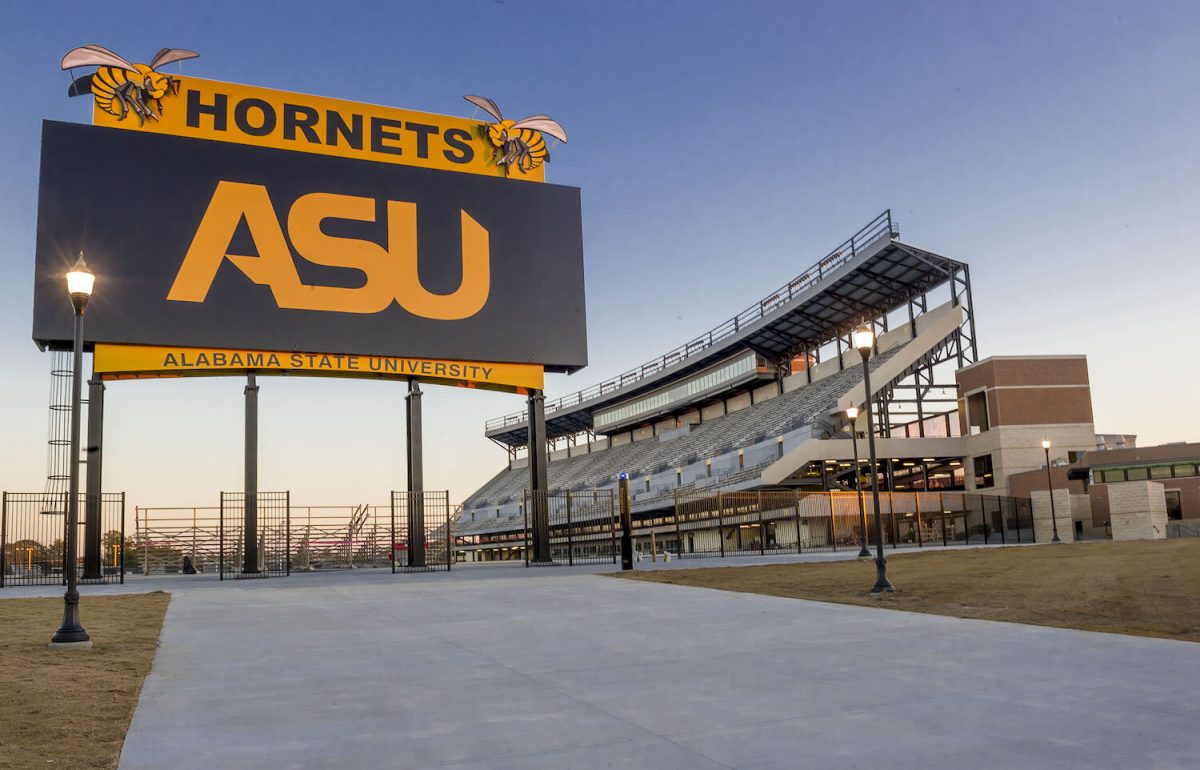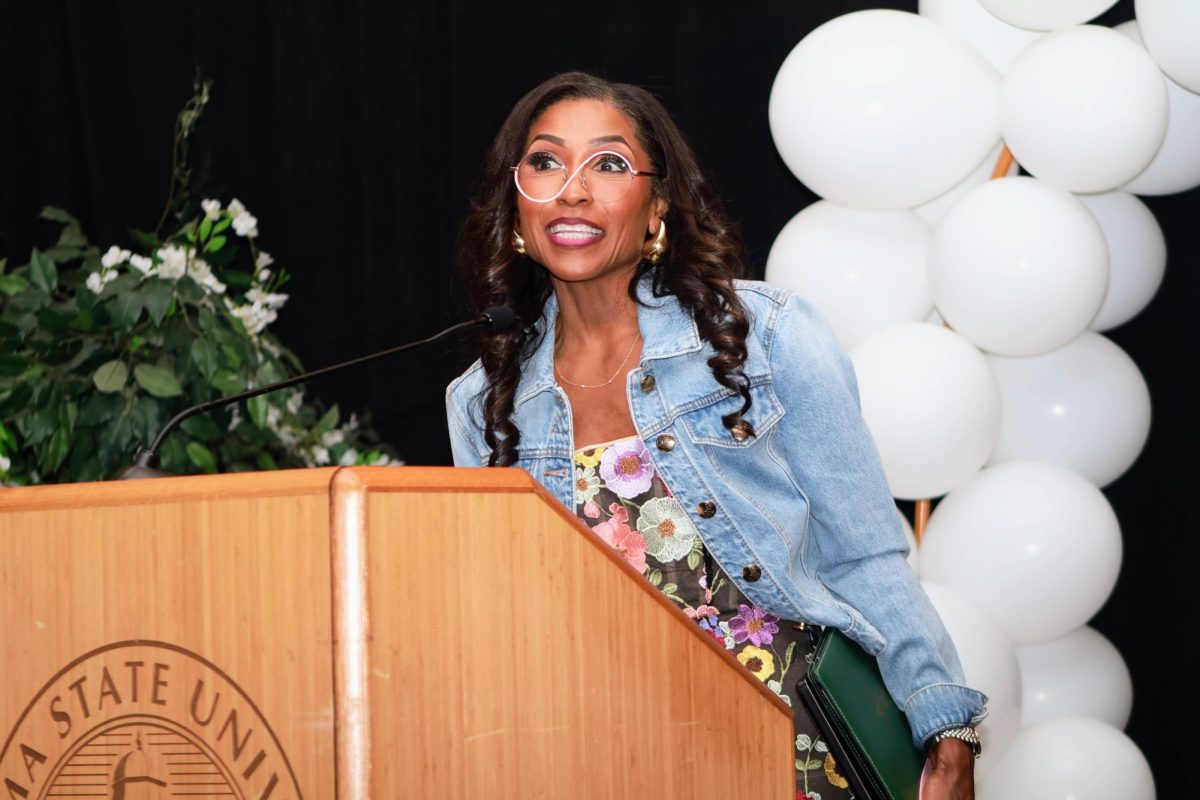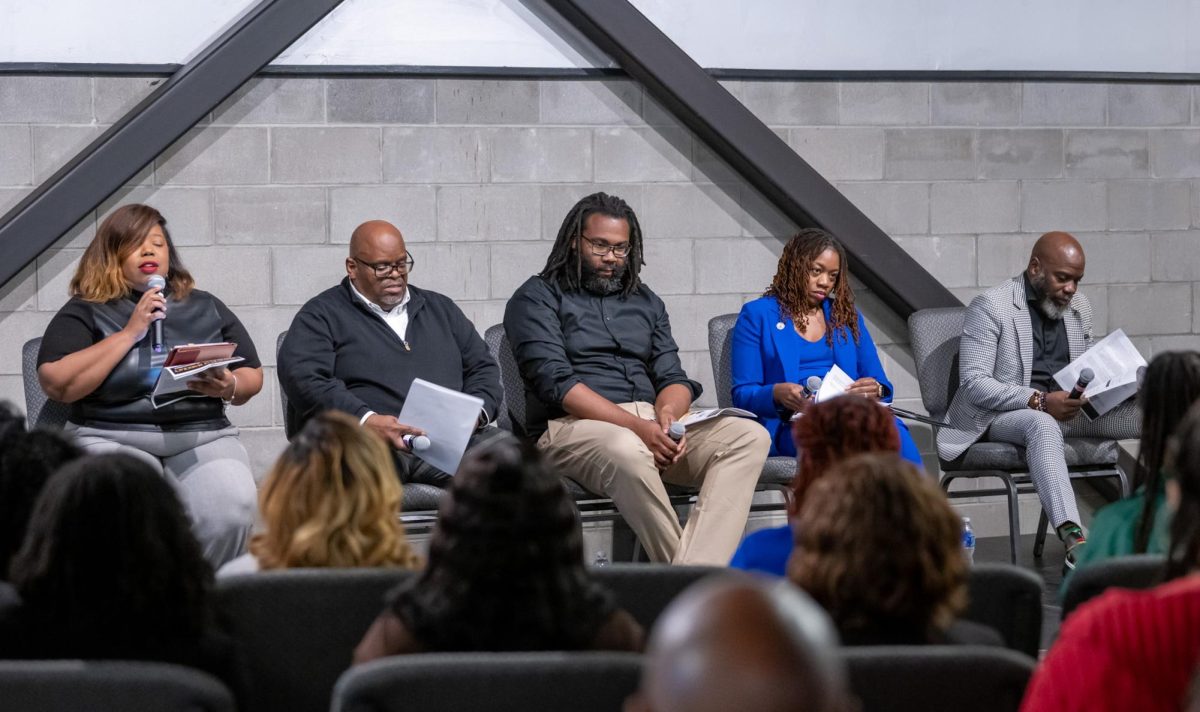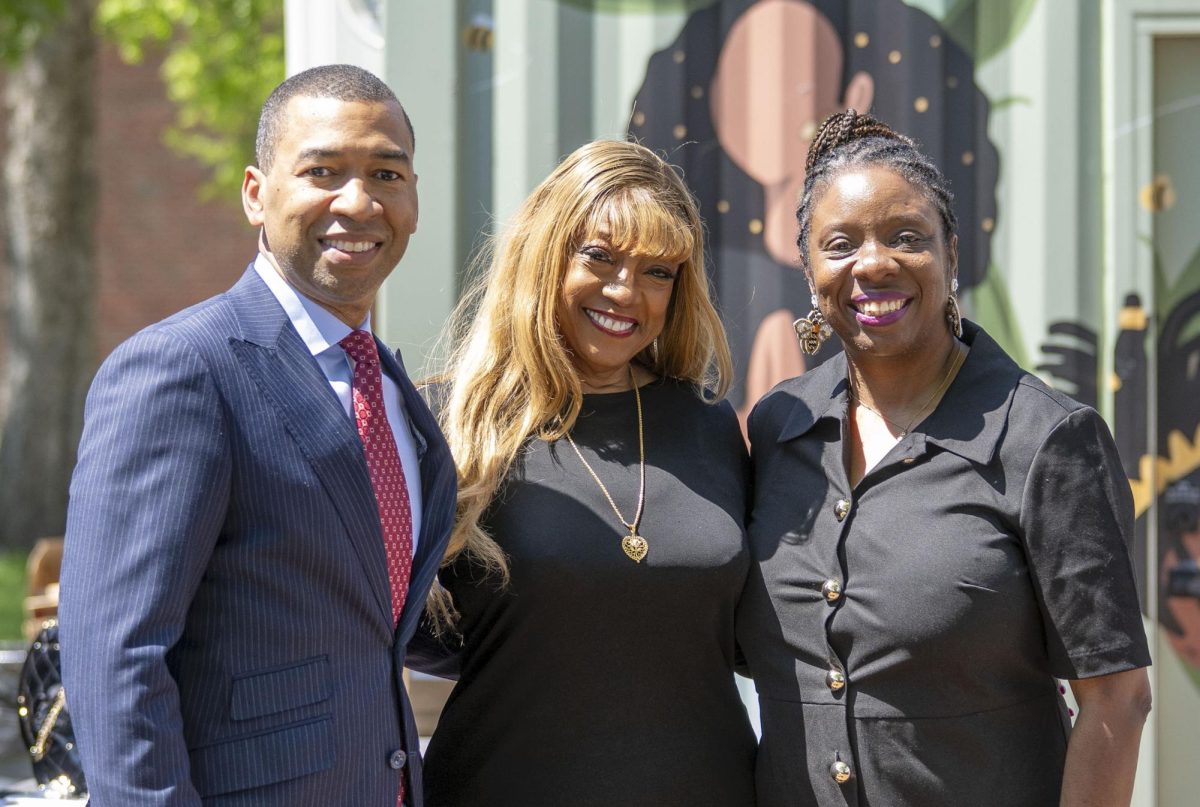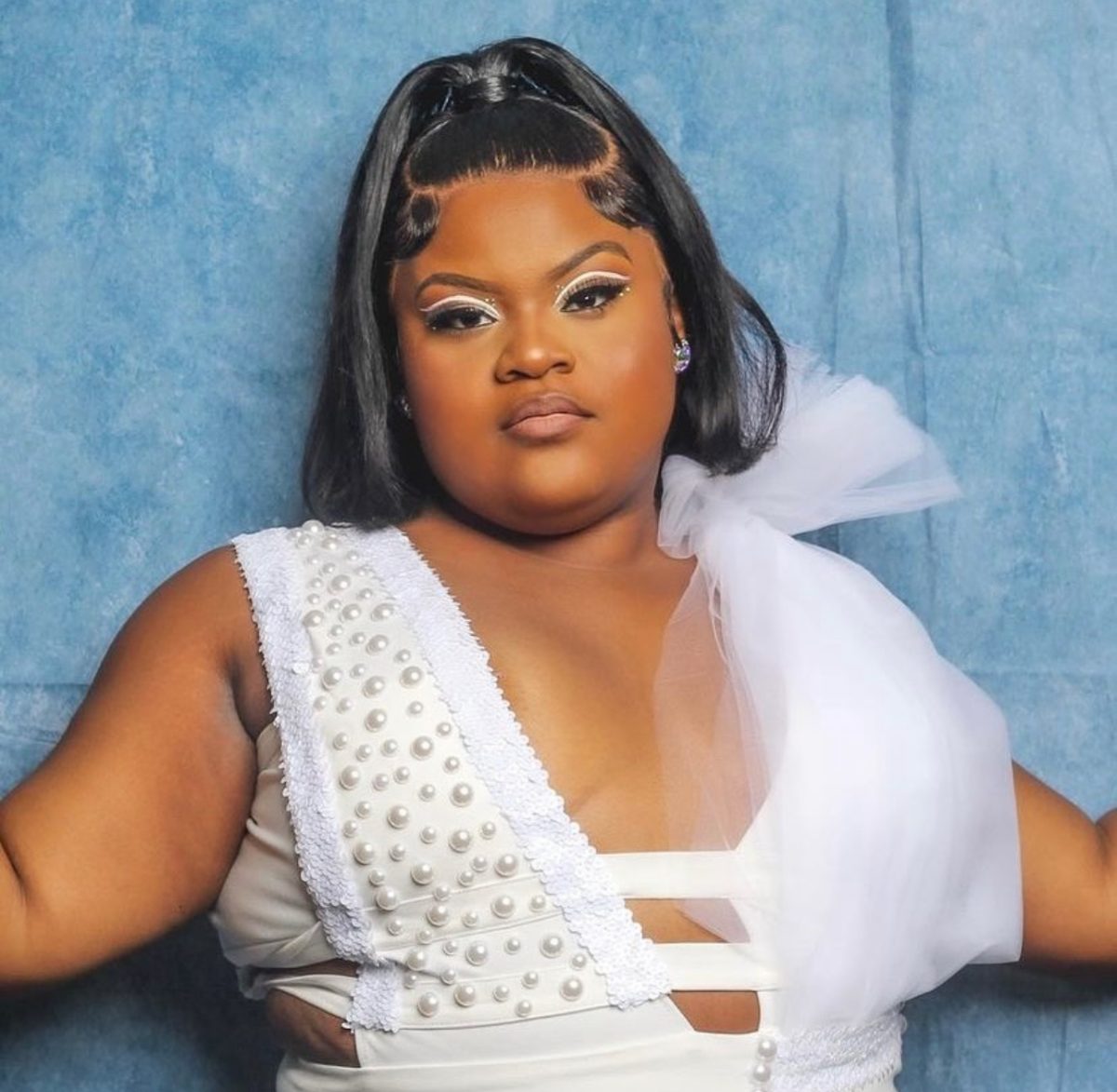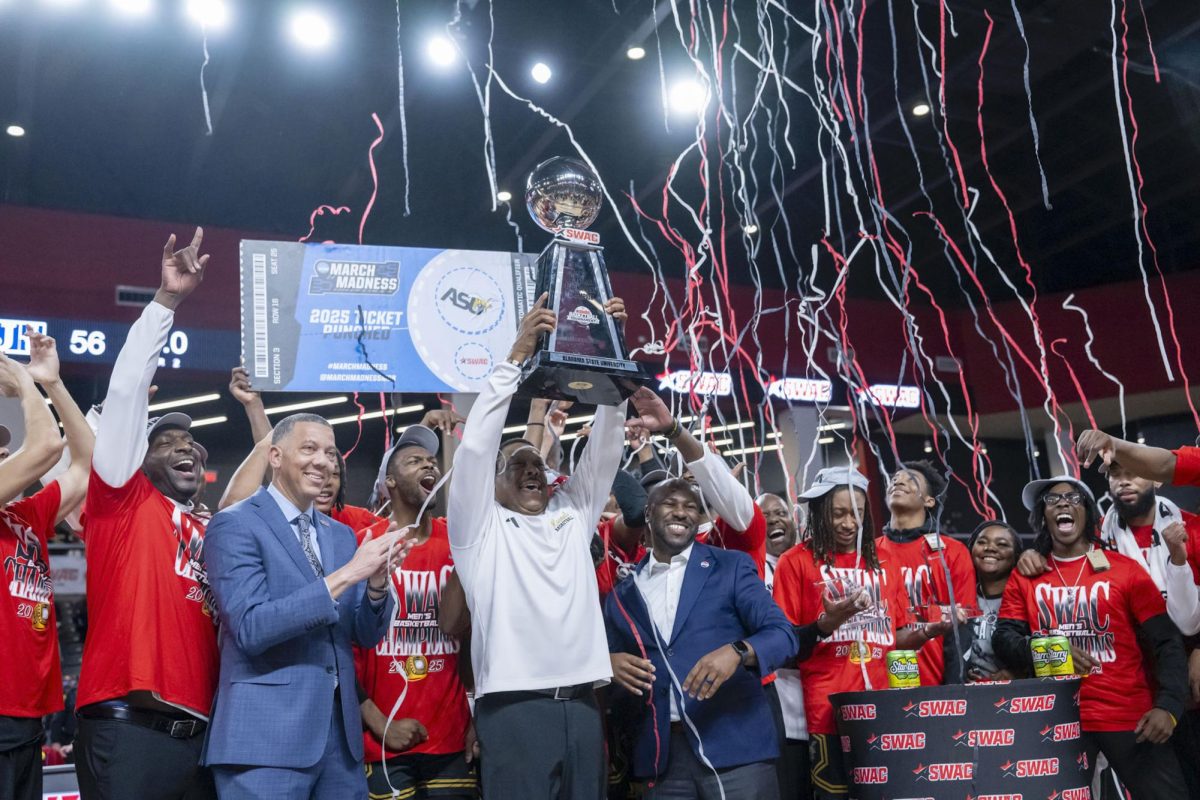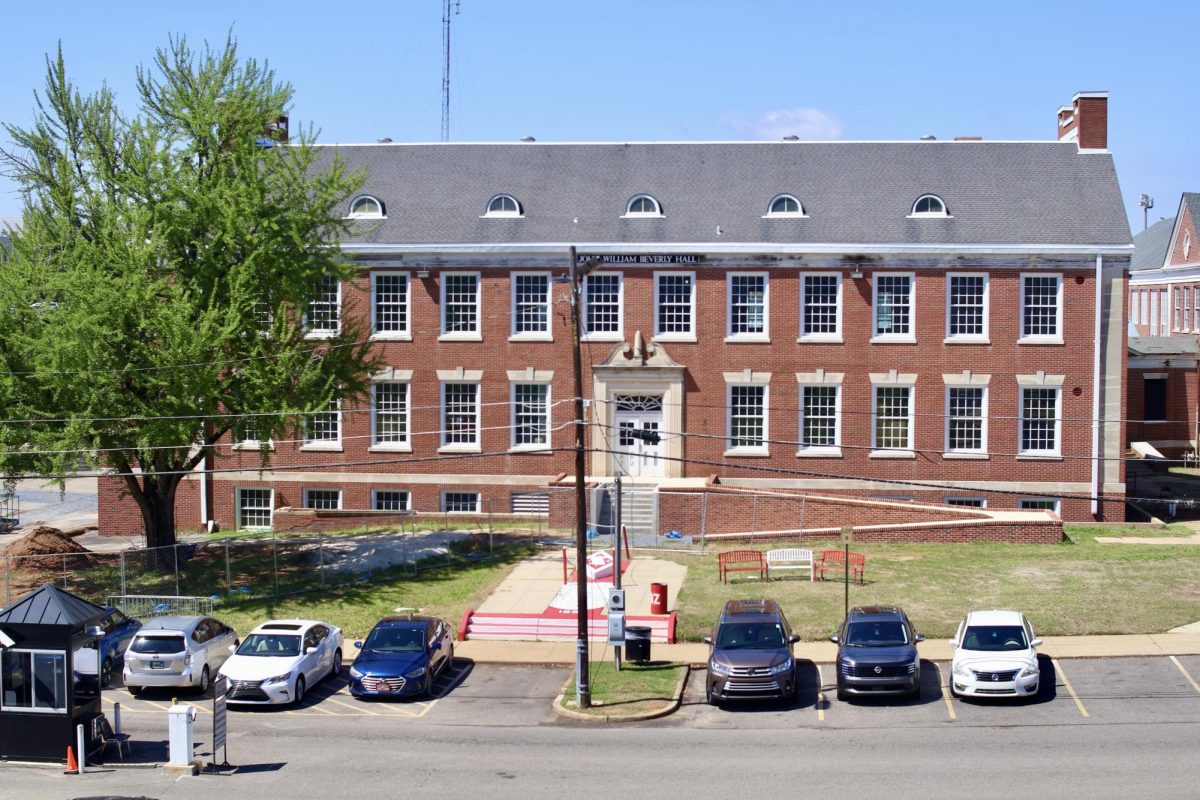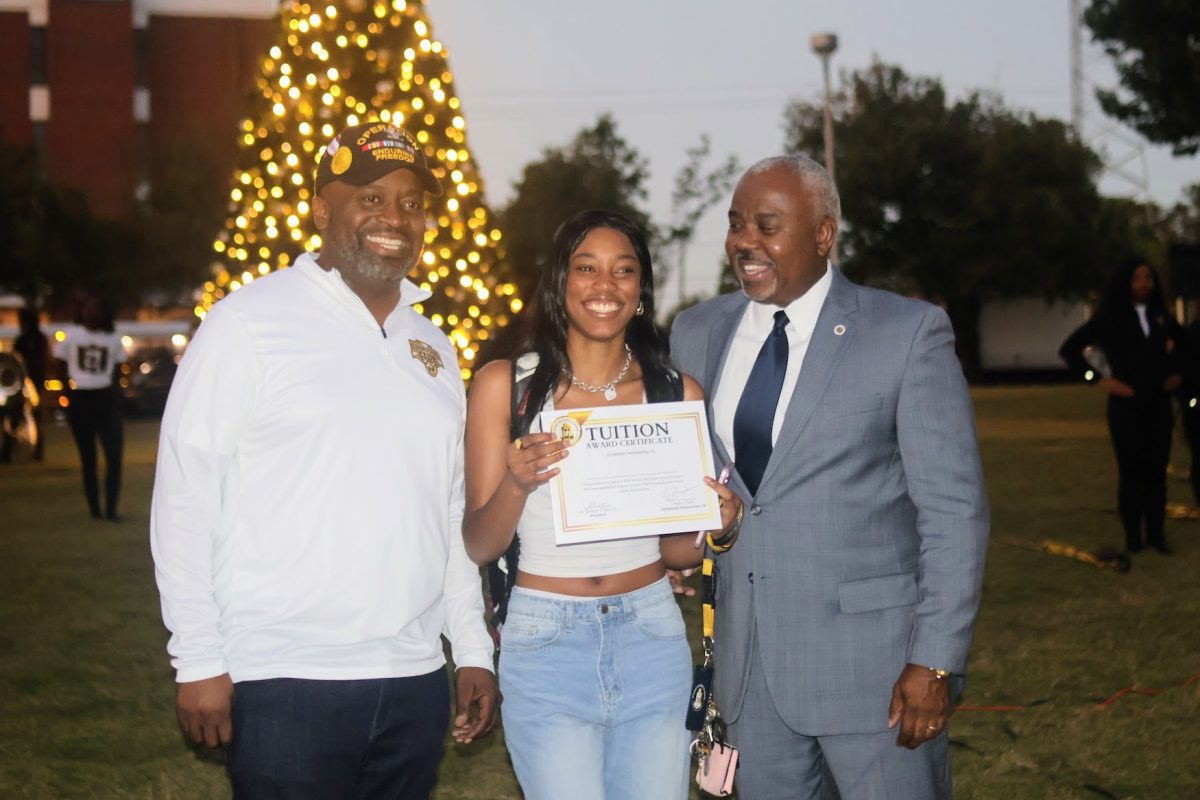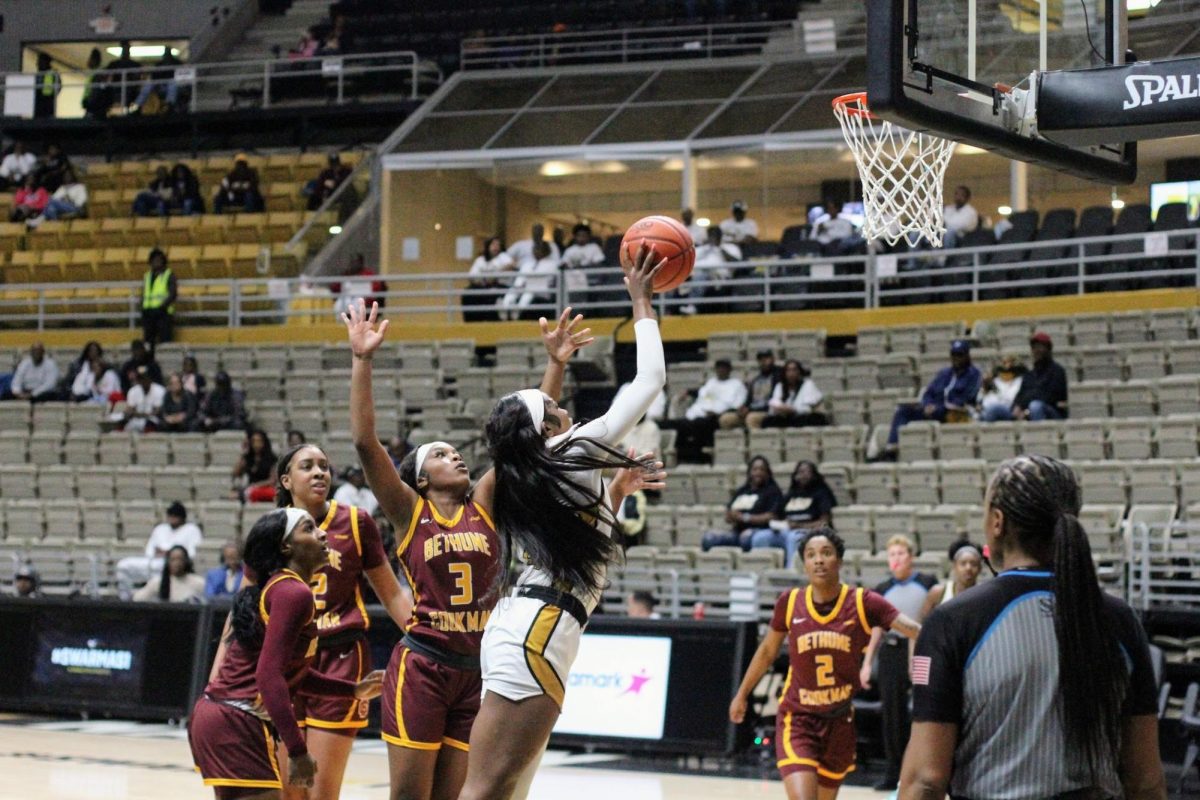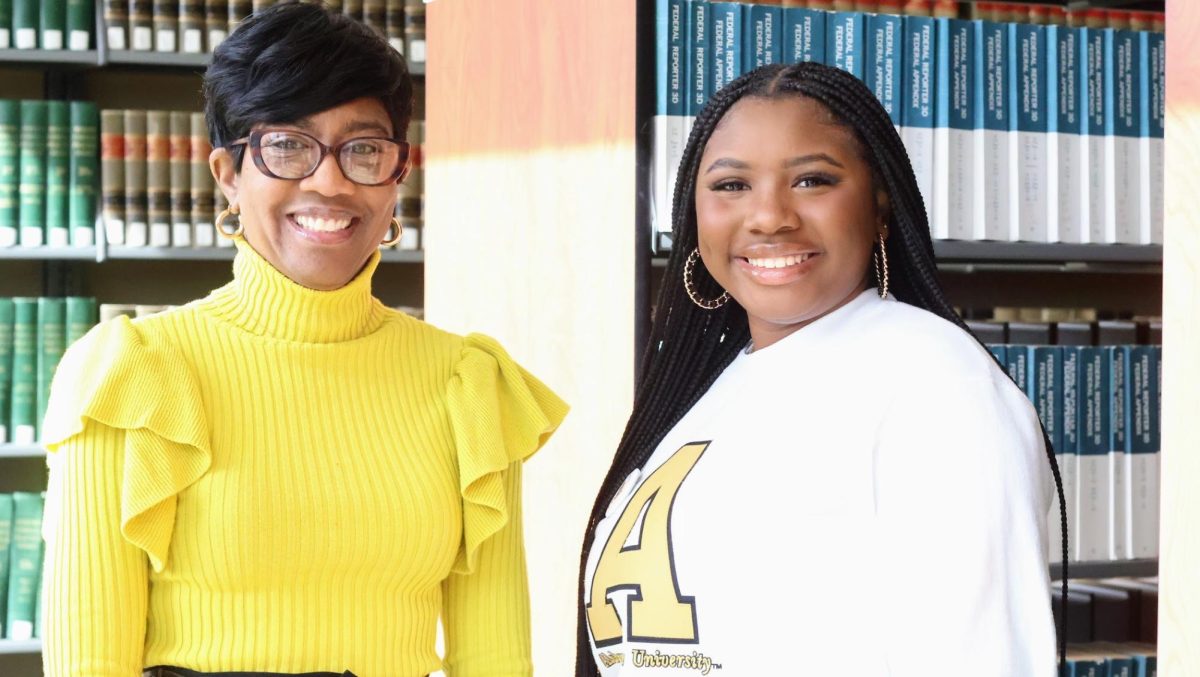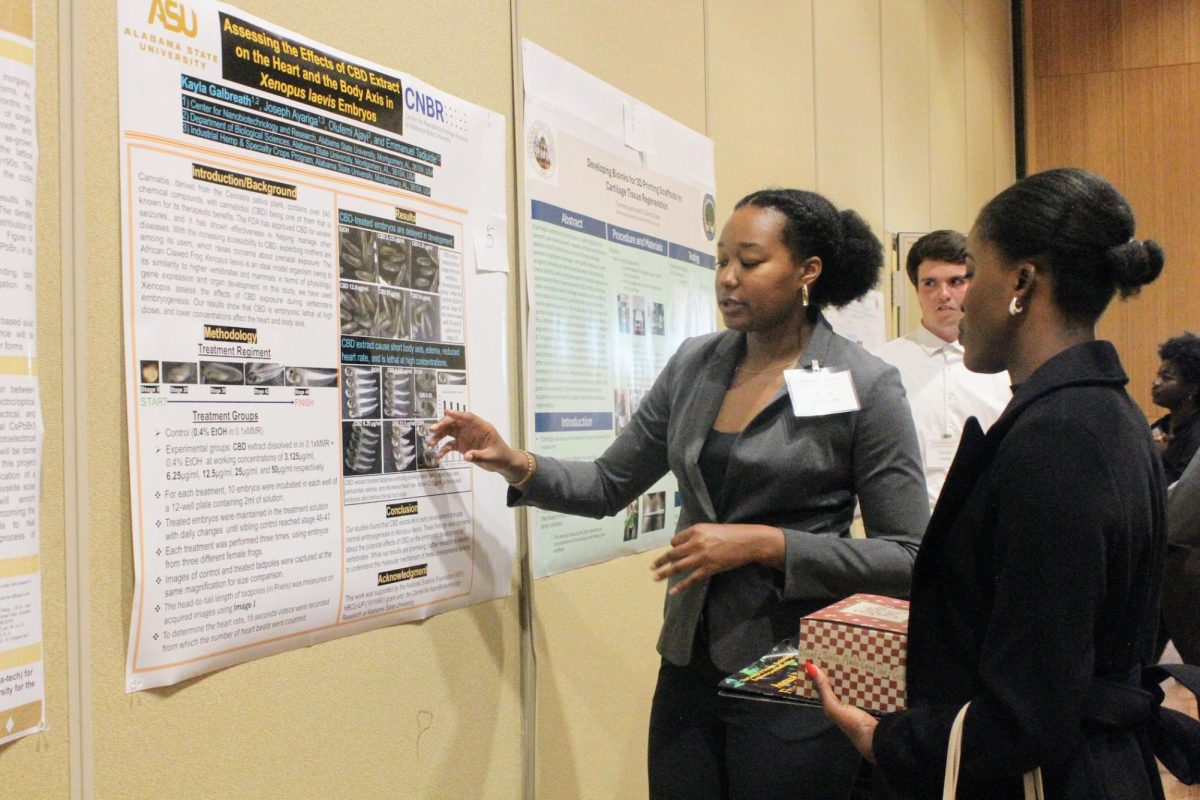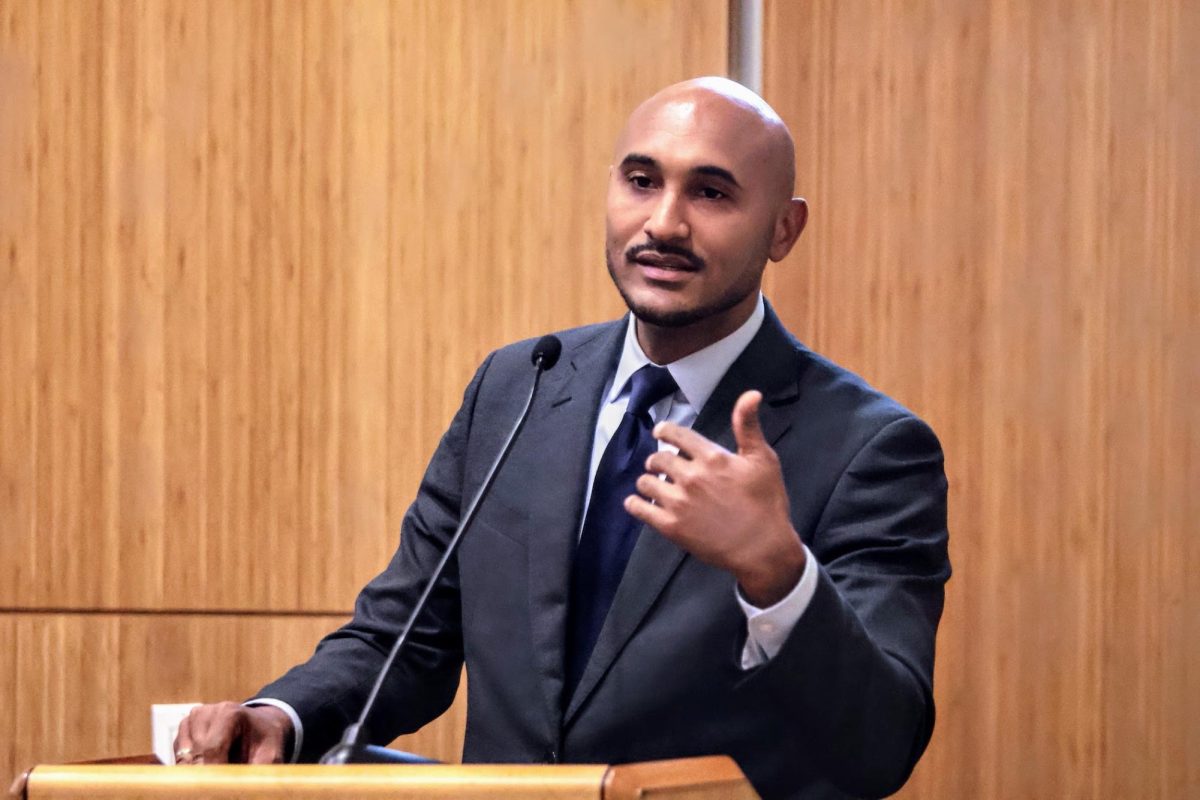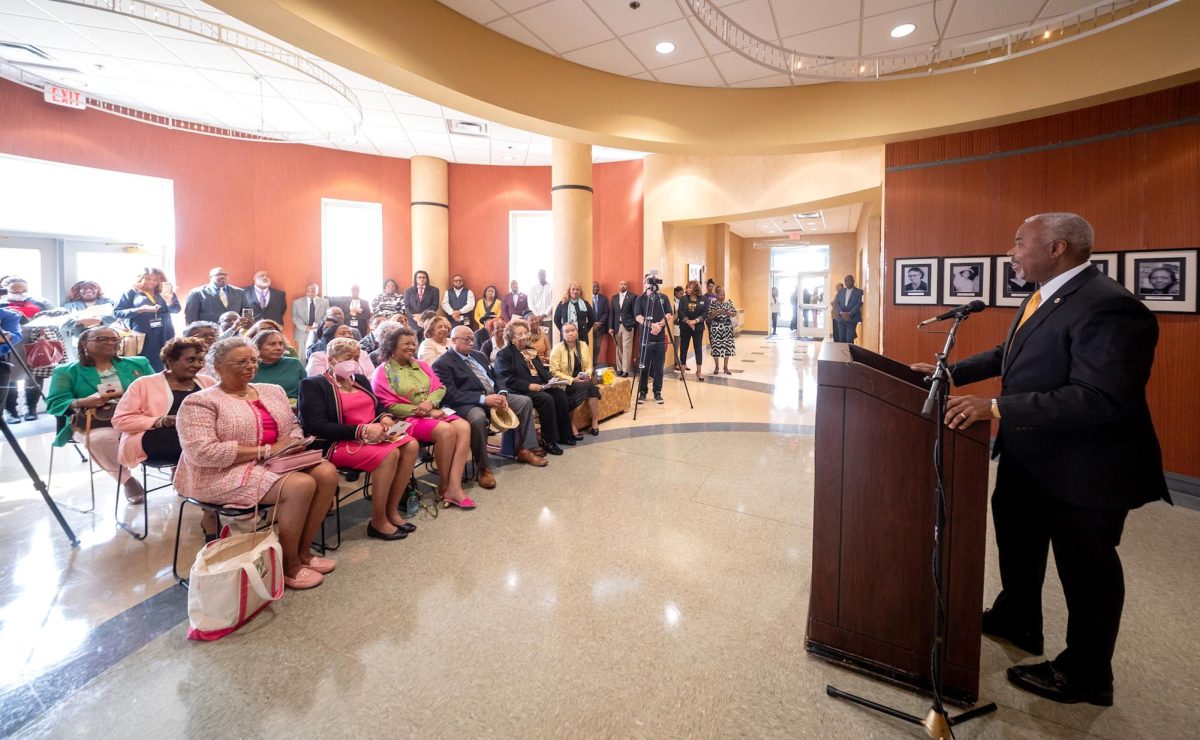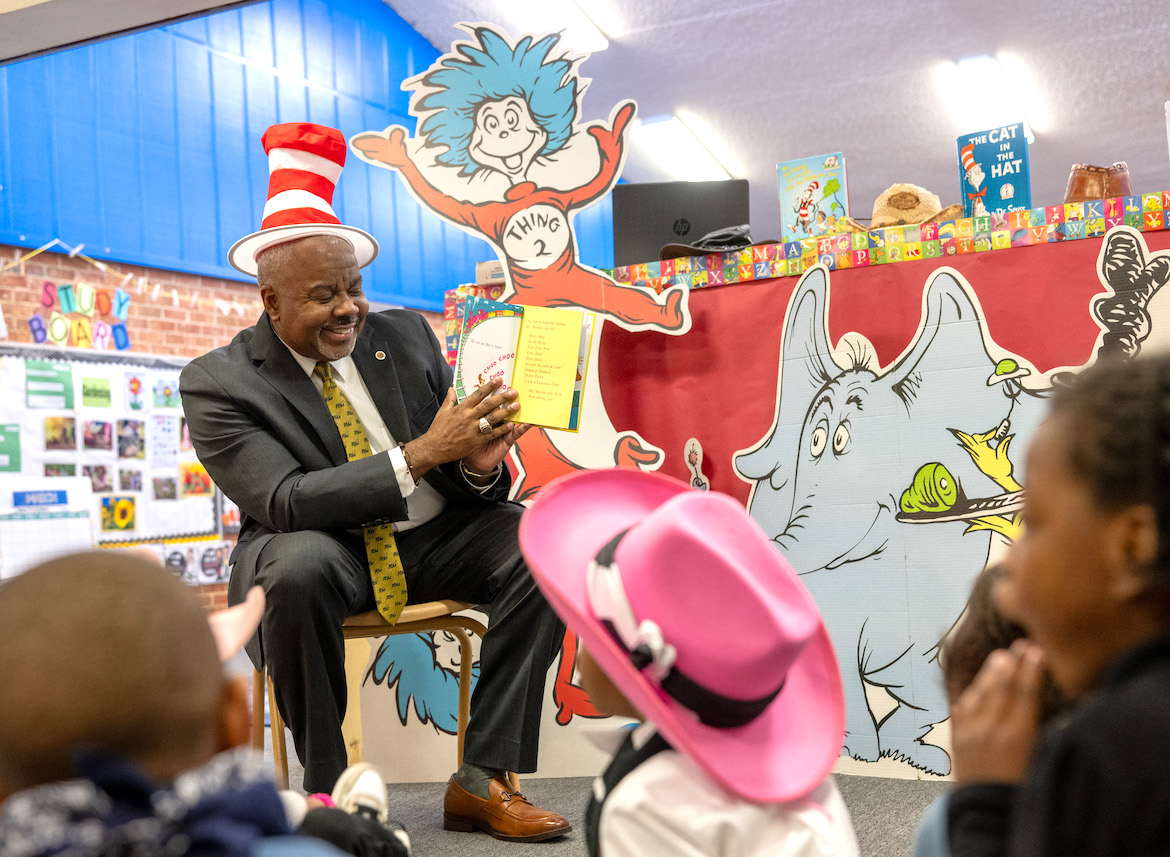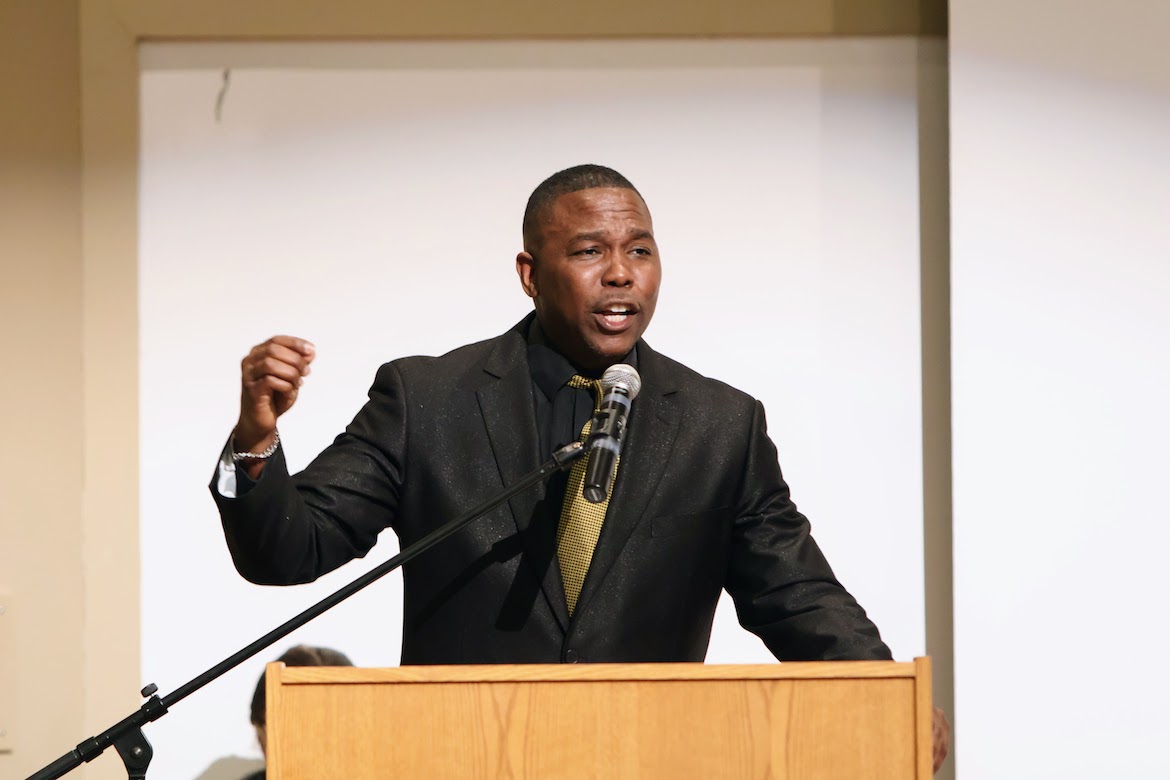Students, faculty and staff stopped by the Alabama State University Health Center Lawn Oct. 11 from 1 p.m. to 4 p.m. to receive free flu, respiratory syncytial virus (RSV) and COVID-19 vaccination shots as part of the “Risk Less. Do More. HBCU Campus Takeover.”
The initiative, aimed at promoting health and safety on historically Black colleges and university (HBCU) campuses, also featured giveaways, games and prizes to encourage participation.
Kenny Washington, president of the Leon Frank Agency, highlighted the importance of the “Risk Less. Do More. HBCU Campus Takeover” event, noting that it is part of a larger initiative in partnership with the United States Department of Health and Human Services.
“This is the ‘Risk Less. Do More. HBCU Campus Takeover,’ a part of the HBCU Tailgate Tour, which we are now in year six,” Washington explained. “We partnered with ‘Risk Less. Do More,’ which is an initiative designed to provide free vaccines to HBCU communities and campuses nationwide.”
Washington emphasized that there are no eligibility requirements for the vaccinations being offered, encouraging all participants to take advantage of the flu, RSV and COVID-19 vaccines available at the event.
“We suggest everyone consult with their physician, but we are providing complimentary flu, RSV and COVID-19 vaccines for all who are interested,” he said. “It’s important that as we approach the holiday season, coming off of homecoming for numerous campuses, we ensure our culture and campuses are safe and healthy.”
In addition to the vaccines, Washington pointed out that the event includes other incentives.
“We’ve got T-shirts today, and tomorrow, we’ll have more tailgate games where participants can win items like AirPod cases and complimentary tickets to ASU basketball games,” he said. “At each campus we visit, we aim to engage fans and supporters of the university through these giveaways. But more importantly, we hope everyone in need of a vaccine comes out because protecting our community is our top priority.”
Washington shared that the broader mission of the HBCU Tailgate Tour is to encourage widespread vaccination and health awareness.
“Our goal is to visit as many HBCU campuses as we can each year,” he said. “We are coming back to Alabama State for basketball season with something very similar as we head into 2025, continuing to promote health and safety across our communities.”
Cambrin Williams, a freshman majoring in forensic biology, heard about the event through social media and decided to participate for the second time.
“I would hope that students get their vaccinations even if they have never had it before,” Williams said, emphasizing the importance of staying healthy during flu season.
Khabril Barnard, a radio personality from Greensboro, North Carolina, and a volunteer with the university’s health center, played an active role in distributing vaccines during the event. For Barnard, the importance of the initiative extends beyond simply administering shots—it is about making health care accessible for those who may not have easy access to it.
“I’m here today to volunteer, helping with handing out flu, RSV and COVID vaccines, some of the main vaccinations people need to catch up on or may not have access to,” Barnard explained.
He pointed out that many people tend to take their health for granted or may not prioritize getting vaccinated until it is too late.
“A lot of people just move through life without thinking about their health until something happens,” he said. “Some people aren’t pro-vaccine, or they think they don’t need it, but for those who do want to protect themselves, events like this are really important.”
Barnard emphasized that the initiative is especially valuable for students who might have busy schedules or limited resources, noting that it is a convenient opportunity to get vaccinated between classes or while heading across campus, without needing to make an appointment or off-campus trips.
Barnard also highlighted how the initiative helps foster a healthier campus environment.
“By providing vaccines here, we’re contributing to a safer, healthier campus,” Barnard said. “It’s all about upgrading your health and staying protected, especially as we get closer to flu season and the holidays. I think it’s a very good opportunity for people to get that upgrade they need to take care of their bodies. It’s not just about individuals, it’s about protecting the whole community.”
Cathy Reynolds, a registered nurse who works in the university’s health center, echoed similar sentiments, emphasizing the critical role vaccinations play in maintaining the health and safety of the entire campus community.
“It is very important that vaccinations are provided because they immunize and give protection to all,” Reynolds said. “These vaccines serve as a valid source of added protection for students, staff, faculty and visitors, and they help us ensure that we’re doing our best to stay protected and prevent the spread of illnesses across campus.”
Reynolds explained that vaccines, such as the flu, RSV and COVID-19 provide an extra layer of immunity, helping individuals avoid contracting these illnesses and preventing them from spreading infections to others. She noted that this extra protection is crucial in a university setting, as it helps prevent outbreaks and keeps the entire campus community healthy.
Reynolds also offered advice for students living in residence halls or those attending large classes.
“I would advise students to stay on top of their immunizations,” she said. “If you don’t have any religious or medical exemptions, getting vaccinated is key. This ensures we all start on the right foot, with the protection we need to stop any viruses from spreading on campus.”
Reynolds further highlighted the convenience of having the event on campus, noting that it eliminates the barriers students might face in accessing healthcare.
“Without this event, students would have to make appointments off-campus with their primary care providers, which could take time and effort that many busy students don’t have,” she explained. “But by bringing this initiative to the campus, we make vaccinations accessible to everyone—students, staff, faculty and visitors. It is a direct and immediate way to protect our community.”


